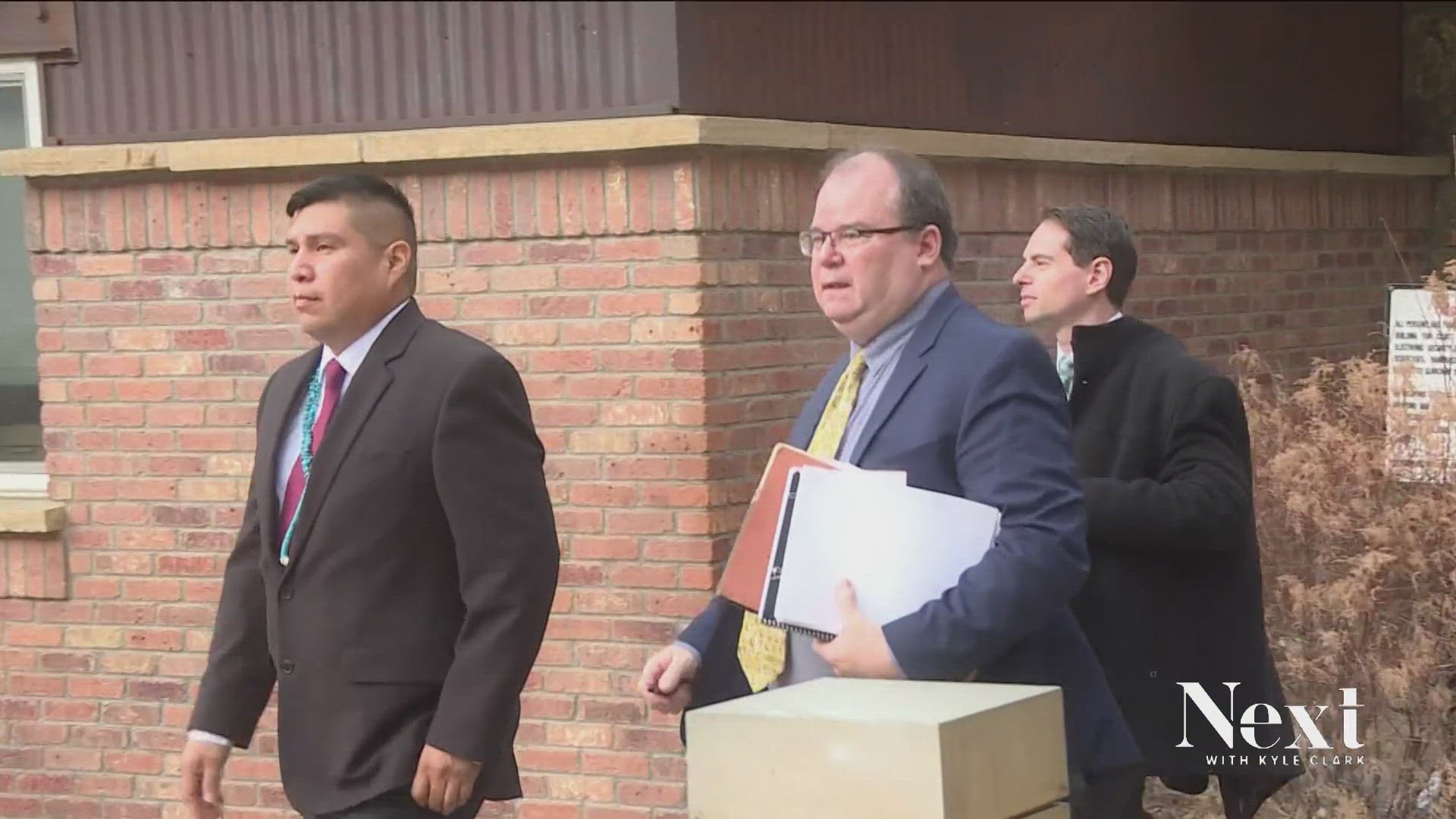GEORGETOWN, Colo. — The six additional officers indicted in the shooting death of Christian Glass represent the largest group of police officers charged under Colorado's new police accountability law since it passed in 2020.
This week, four of the six officers who were on the scene the night Glass was shot and killed made their first court appearance. Among them was a Colorado State Patrol (CSP) trooper.
His boss and CSP chief, Colonel Matthew Packard, wrote in a statement the trooper, Ryan Bennie, did nothing wrong.
"As the Chief of the Colorado State Patrol, I have had the opportunity to review at length the events that led to the killing of Christian Glass. In my review, I found no indication that Trooper Bennie violated any Colorado State Patrol policy or training. I am shocked by the decision of the District Attorney to pursue charges against Trooper Bennie," Packard wrote.
Yet, the department is connecting the Glass case to a training on failure to intervene as part of the record-setting $19 million settlement reached by several police jurisdictions, the state, and the Glass family.
Sally and Simon Glass introduce themselves in the training introduction video, two heartbroken parents speaking straight to the camera.
"If any of the officers who were present that night had taken this training and followed the guidance, Christian would be alive today," Simon Glass says.
It's a video all members of CSP see before they take a specialized training, called Active Bystandership for Law Enforcement (ABLE). That training teaches police to step in and stop a fellow officer before they go too far. It trains them to intervene. The settlement also requires CSP to create a virtual reality training featuring the details of the Christian Glass call.
Failing to intervene is what prosecutors say the group of six officers didn't do the night Christian Glass was shot and killed by former Clear Creek County Deputy Andrew Buen.
Bennie is one of the six officers charged. He was on scene that night, and his dashcam captured a warning from his off-scene supervisor over the radio.
"Can you ask Clear Creek what their plan is? If there's no crime and he's not suicidal, homicidal or in grave danger then there's no reason to contact him," the supervisor said.
Bennie then spoke to the other officers on scene.
"My sergeant says there's no point in contacting him if he's not a harm to himself or anyone else, then no crime," Bennie said.
Those concerns didn't stop police from breaking into Glass's car and didn't stop the shooting.
Simon Glass spoke on the disconnect between Packard's statement and CSP's training.
"Is there something going on in the leadership of CSP where they don't understand the severity of this?" Glass asked. "Are they just thinking this is some minor issue?"
SUGGESTED VIDEOS: Next with Kyle Clark

